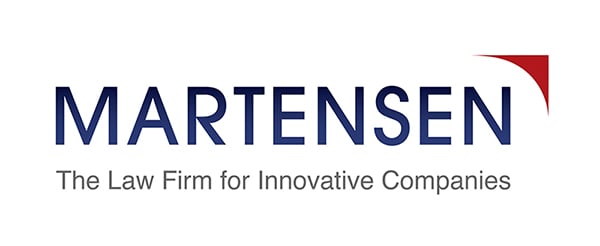Practical IP Advice for Proposal Writing
The process of entering into the world of government contracts can seem daunting, especially if you are in the early stages of building a business. This article is meant to shed some light on both the process of government contracting as well as the necessity of creating and maintaining an effective strategy for protecting your company’s intellectual property before you enter into that process.
Understanding the Importance of IP Strategy
Before explaining why an IP strategy is necessary, it is important to understand what exactly an IP strategy is. An IP strategy consists of four main stages:
- identifying what to protect;
- determining how to protect it;
- executing the plan;
- and maintaining the plan.
Every one of these steps is equally important in effectively protecting your intellectual property. In terms of patents specifically, the first step involves discussions regarding what inventions you would like to protect. Indeed, sometimes the discussion is focused on what exactly is the invention to protect. Some inventions may be more integral to your business than others, which is important to note if your business is just starting up and needs to be frugal with financial decisions.
The second step is determining how to protect your intellectual property. For instance, what is the scope of protection you need, and does it need to be kept secret? The execution stage involves applying for, gaining, and maintaining patents on its inventions, or the steps necessary to protect a trade secret. This step can take a few years but is still incredibly important. It is difficult to claim ownership or license data rights to something if you don’t exclusively own it.
The final step of an effective IP strategy is revision. Protecting your intellectual property isn’t as simple as obtaining a patent, paying maintenance fees, maintaining a trade secret, or asserting a copyright. It is important to actively revisit your IP strategy to revise it as needed, depending on your business needs at the time. The goals of a business change over time, so your IP strategy should evolve to address the growing and changing needs of your business.
Patent/ Data Rights and the Process of Government Contracting
When you contract with the government, the goal of the government is to gain use of your inventions, usually through some kind of license. The government rarely seeks to “own” intellectual property. Understanding the types of rights you possess, and the corresponding terminology is important during negotiations. Patent rights are the rights that the creator of an invention gains when he or she applies for and obtains a patent. These rights are usually assigned to the company where the inventor is employed. Data rights, on the other hand, refer to the licensed rights to use copyrighted or trade secret material that the government gains through the performance of a contract (The DoD gains data rights based on allocation of funds).
Generally, the process for obtaining a government contract looks like this:
- The government puts out a call for proposals for a project;
- Your company drafts a proposal in response;
- Your proposal is reviewed and either accepted or rejected;
- Your company and the government negotiate the contract;
- Your company performed under the contract;
- Your company provides the government the deliverables under the contract.
It is important to understand the process and timeline, as they are usually not short term, and can take years between proposal and delivery.
Build a Strategy from the Beginning for Your Rights
In order to properly move forward with any proposal or other work, it is highly advisable that you work with an IP attorney before this long process to build a custom strategy for protecting your rights. Many companies think that they will only need to bring an attorney into the mix once they have written a proposal and had it accepted, and request help writing or reviewing the contract. Unfortunately in government contracting, bringing an attorney in this far into the process may be too late to protect your intellectual property. The contract is usually derived directly from the proposal itself; it isn’t an entirely new document. If the proposal isn’t drafted to match your intentions regarding patent and data rights, you may end up giving up more of your rights than you originally intended. It is incredibly difficult to backtrack and add in protections for your rights if they weren’t established from the beginning.
For example, if in your proposal, you state that you will “develop” and “deliver” a particular widget, that statement will likely be carried into your contract’s statement of work and list of deliverables. Government contracts define many common contractual terms using their own specified definitions. Those definitions can be found in the FAR or DFARS. “Develop” is one of the defined words. If you contract to “develop” a widget for the government and then deliver the widget, the government gets unlimited rights over that widget and the IP behind it. The government may have been fine with you just demonstrating that the widget you are delivering works, dramatically impacting the scope of the governments IP rights to the widget. Words matter. Hiring an attorney to review your proposal can help keep you match your goals with IP protection to maintain a competitive advantage while still meeting the governments needs.
And this isn’t to say that hiring an attorney during contract negotiation isn’t still useful. Government contracts differ from commercial contracts in a number of ways that can be important while undergoing negotiations. It is important to understand exactly what you are agreeing to. One of the main differences of note are the parties involved; your company will be mainly working with both a contracting officer and a technical representative, rather than just one individual. The contracting officer is more concerned with the legal and long term interests of the government, whereas the technical representative is, focused on the technology and ensuring that the deliverables do what they are supposed to do. Understanding both roles and maintaining a working relationship with each is critical.
Important Takeaways for Business Owners
As a business owner, you don’t want to be in a position where you are forced to give away the keys to the kingdom (as far as patent and/or data rights) simply because there was no plan in place to protect them, which is why it is imperative to have an appropriate IP strategy for your rights from the beginning. You must know what rights in what technology you want to protect, and how you want to and how you can protect them. The best way to gain peace of mind is to hire a competent IP attorney knowledgeable in government contacting who can guide you every step of the way, from proposal to delivery.



